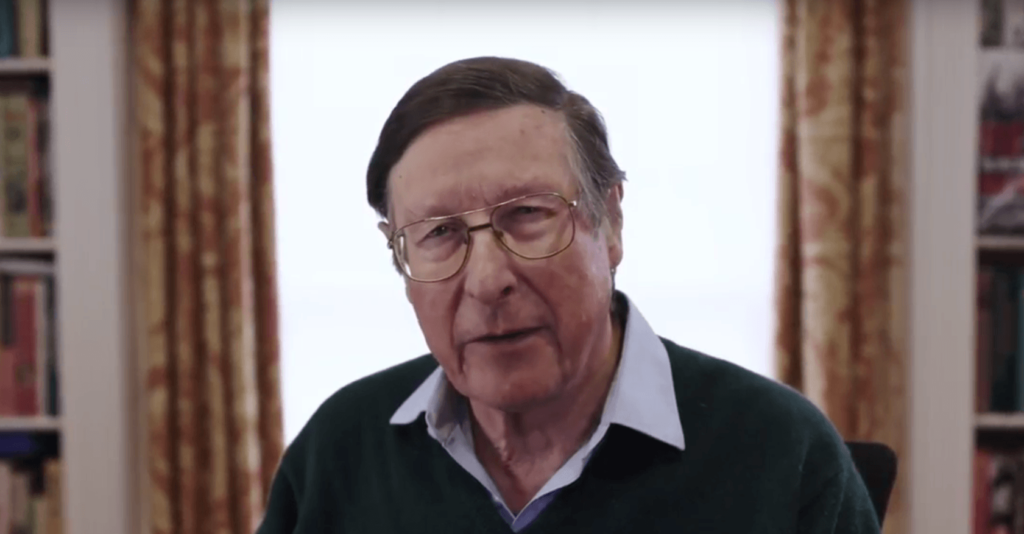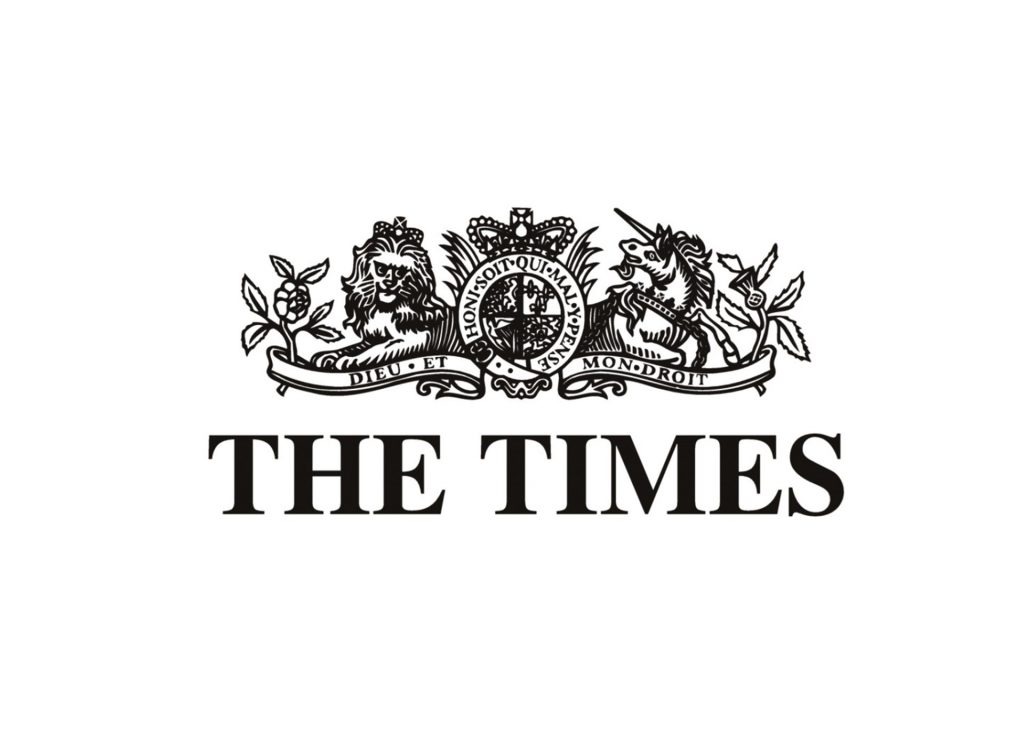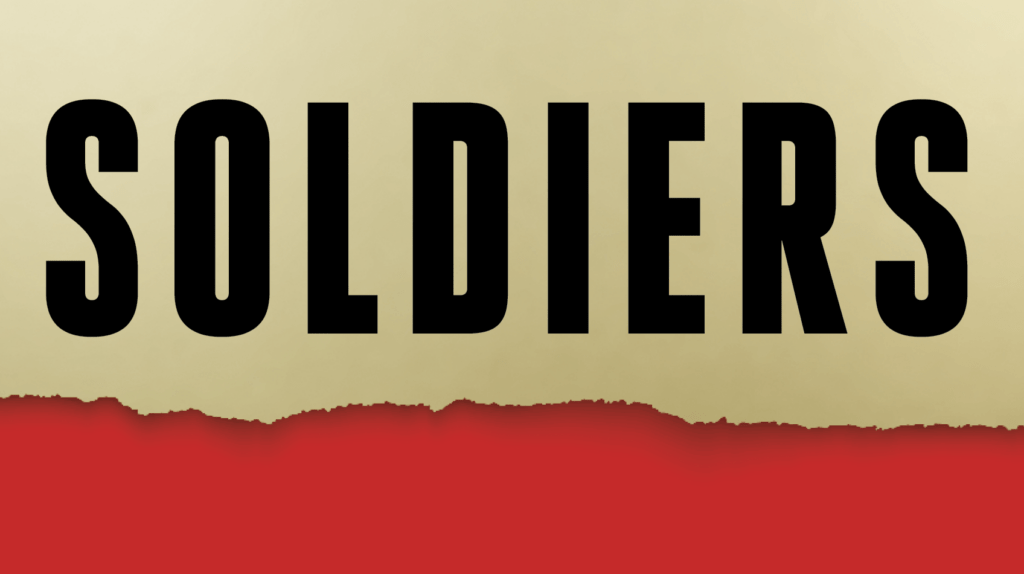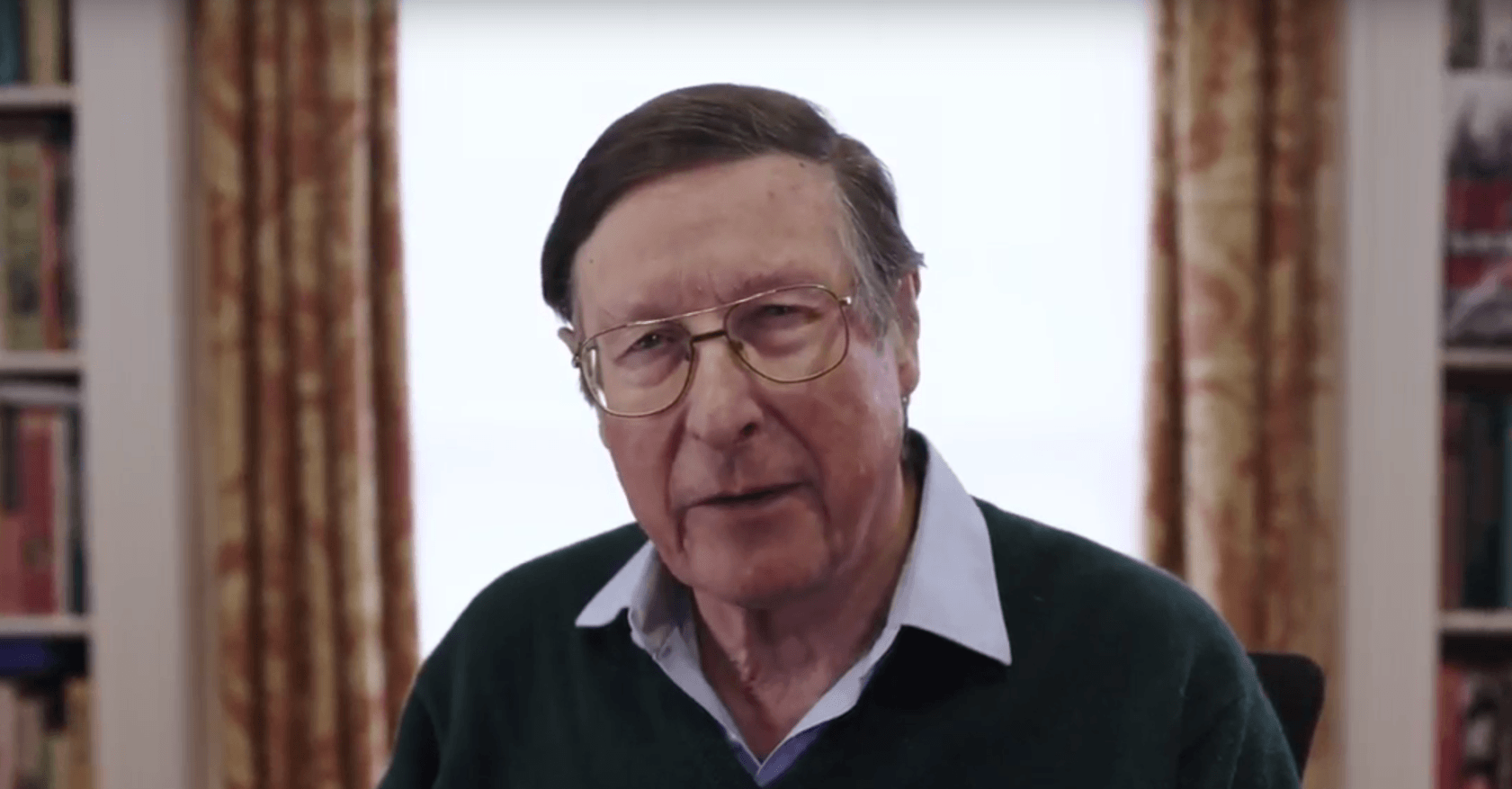The Falklands was a freak of history which today to me, and probably to you, seems almost as remote as the Boer War. Its most important lesson , which Tony Blair has learned the hard way, is that success justifies all. Especially since Lawrie Freedman’s exemplary official history was published last year, we now know just how serious were the blunders by the Thatcher government which led up to the conflict. At every stage, there were warnings that the Argentina junta was up to no good. The British government failed to respond either by diplomatic surrender not by military deterrence. Lord Carrington has described how, when he tried repeatedly to persuade Mrs.Thatcher to address the Falklands issue by negotiation with Argentina, she wagged her finger and said: ‘Peter, it is absolutely typical of the Foreign Office that you want to give British things away’. But for all her declared firmness of purpose, the Prime Minister failed to adopt the logic of her own policy, which was to put forces in place, even a single submarine, to respond to the escalating Argentine military threat. If Britain had lost the Falklands War, there is no doubt in my mind that the subsequent inquiries would have concluded that defeat was the result of deplorable policy failure by the British government, in their way as serious as those which caused Britain to become entangled in the Iraq catastrophe in 2003. But, as we know, Britain did not lose in 1982. Following the Argentine invasion of the islands, Mrs.Thatcher launched one of the most remarkable military adventures in modern British history, to save her own political neck and, incidentally, the honour and credibility of her country. If that sounds a harsh verdict, consider what would have happened if she had not dispatched a task force to the South Atlantic. Both she and her government in the spring of 1982, were vastly more precarious than we sometimes remember, even before the Falklands crisis broke. Many people believed that she would lose the next general election. Many Tories were still deeply sceptical about both her record and her intentions as prime minister. There is almost no doubt that, had she chosen to acquiesce in the Argentine invasion, she would have been obliged to resign as prime minister. There would have been no legend of the Iron Lady. There would have been no political epitaph for her, as Britain’s greatest peacetime prime minister of the twentieth century. It may be said of the Falklands War that the issue itself was quite irrelevant to the interests of the Britain in the last 20 years of the 20th century. It was a tiny, almost ridiculous hangover from empire. It caused us to invent, after the fact, a strategic interest in the South Atlantic which we never recognised before the war, and to fortify it at a cost which today has reached a grand total of £3 billion, to justify post-facto the fighting of the war. But it might also be argued that it was cheap at the price, because it provided Margaret Thatcher with the political power base from which she was able to do extraordinary and historic things for Britain during the years which followed.
But what I am really going to talk about tonight is not the politics, but the nature of that quite extraordinary military adventure, which for me and many others who sailed to the South Atlantic proved one of the great romantic experiences of our lives. The day we heard of the Argentine invasion of those islands, I was sitting at home in the country, working on a book about D-Day in June 1944. I was trying to make the leap of imagination essential to all writing of that kind, to think what it must have been like, to be crouched in a landing craft heading for a hostile shore. When I first heard that Mrs.Thatcher was sending a task force, I thought it sounded crazy. The idea that we might fight a war in the year of our lord 1982, for a meaningless piece of real estate at the opposite end of the Atlantic sounded beyond bonkers. I was more or less out of the newspaper business at that time. I had not been to a battlefield since the fall of Saigon seven years earlier. I had no plans ever to do so again. I was 36, which is getting a bit old for running very fast in either direction under fire. But the more I thought about it, the more I came to believe that if Britain was to send a task force to fight what would surely be the last colonial war in its history, I had to be there to see it happen. I had always regretted not being alive to go up the Nile with Kitchener to the war with the Dervishes in 1898. Having missed that experience, the next best thing seemed to be to go to the South Atlantic, by proxy at least with Mrs.Thatcher, to fight the Argentines. I moved heaven and earth to get a berth with the amphibious force. All my friends among the veteran war correspondents thought I was crazy. They could not believe there would really be a war. Several said to me: ‘Max, you’ll waste weeks of your life sailing in circles round the Atlantic, and then come home having done nothing’. They believed that they could do what most star reporters do in these situations – sit and wait while the long diplomatic game was played out, then fly out to join the action if war really beckoned. It never occurred to them, or even to me, that this would not happen; that the only journalists who would be allowed, indeed privileged, to witness the war in the Falklands would be those who sailed from Southampton that Easter weekend of 1982. We were a small group among whom some of the broadcasters were very experienced war reporters like Michael Nicholson of ITN. But the newspapermen were news desk hands dispatched by their titles to keep the story warm, so to speak, until the time came to send their stars, if things got serious.
In those early days, there was a lot of talk about 3 Commando brigade sailing to war in a luxury liner – Canberra. In truth, almost every hint of comfort and every vestige of culinary talent was taken out of that huge ship before we sailed. The Royal Navy was bitterly hostile to taking any correspondents to sea at all. The admirals wanted to go south, fight the war, and tell the world afterwards who had won. Having been obliged by Downing Street to take some journalists, they first allotted us berths in the Lascar stokers quarters in the bilges of Canberra. Only when a press officer with difficulty persuaded the senior naval officer on the ship that this might have an unfavourable impact on press coverage were we grudgingly moved higher up, and eventually found cabins in which we spent the next long, dreary six weeks at sea.
The Royal Marines and Paras aboard spent that time training, of course. Each morning at seven, squads of supremely fit young men pounded around the promenade deck, wearing T shirts of shocking political incorrectness, and chanting ‘We are strong, we are tough, because we eat our wheatipuffs’. As for me, I was so ashamed of my flaccid, white, early middle-aged body that I got up two hours earlier, to run alone. I knew that if we were to fight, I needed to be in a lot better shape than I had been as a mere civilian writer, occupying a desk in Northamptonshire.
We spent countless hours in the Crows Nest bar with the officers, speculating endlessly about what might, or might not happen. Our own news came from BBC World Service. Every day, as we ploughed south, we heard of the fluctuating fortunes of the diplomacy. And every day, the possibility that we might really fight seemed to become just a little more real. Although I had joined this extraordinary expedition because I wanted to see the action, now as it grew closer I started feeling scared. I thought: somehow I’d survived a lot of wars when I was younger, without a scratch. Had I pushed my luck too far, by signing up for just one more ?
One occasion at sea, I shall always remember. The band of the Royal Marines, in full-dress uniform, staged a concert on the deck of Canberra. It was a beautiful tropical evening, far out on an empty ocean save for the rest of the little amphibious convoy our frigate escorts. Thousands of young men crowded the ship’s upperworks as the band played all the great military and naval standards: Sailing, of course, which became a sort of theme tune of the expedition; hearts of oak, Rule Brittannia. I sat entranced, moved as we all were by the spell of the moment. The world was watching, and wondering where we were. We represented the commitment of all the hopes and residual military power of the nation, engaged on the sort of venture that British forces had undertaken a hundred times before in our history. Now, surely for the last time, we were doing it all again. I felt a deep sense of privilege, to be there at that moment with these men whom I respected and indeed loved so much, to witness this great occasion. All my own doubts and scepticism about the purpose of the expedition were set aside, I just wanted to see us do this thing, win, and myself have a chance to decribe it in terms worthy of those who would do the business.
SEASLUGS
The first real crisis of the amphibious operation came within days of the initial naval clashes – the sinking of the cruiser Belgrano, the loss of the Sheffield. We knew now that we were to fight, and to land in the Falklands. It was necessary to move 3 Commando Brigade from Canberra and the ferry Norland, into the assault ships. But how to do it? It was vital to conserve helicopter hours, which had already been dangerously stretched moving supplies from ship to ship. There was serious talk of transhipping three thousand men one by one by breeches buoy, winch and pulley, which would have been a nightmare. Then there was a miracle. The South Atlantic, through which we had been ploughing amid heavy seas for so many days, suddenly lapsed into a near flat calm. For eight hours, long columns of men filed down through the big ships to galley ports by the waterline, and leapt one by one into landing craft pitching alongside. ONE DRAMA IN BOAT I JUMPED
NEXT DAY 20 key day GREAT DRAMA AS WE CLOSED IN ON FALKS, KNOWING WE HAD NO AIR SUPERIORITY. THICK FOG.
AT LAST NIGHTFALL, FELL ASLEEP. WOKE AND WENT ON DECK, BLACK, DIM SIGHT OF ISLANDS, SILENCE.
THEN SUMMONED INTO LANDING DRAFT, GOOD LUCK MATE GIVE EM HELL. WAR IS FULL OF CLICHES.
SIX WEEKS AFTER SITTING IN NORTHANTS IMAGINING D DAY FOUND SELF CROUCHED IN LANDING CRAFT.
RAN UP SHORELINE INTO SETTLEMENT, KNOCKED ON DOOR PAT SHORT, SET TLEMENT MANAGER.
NEXT FEW HOURS DIGGING IN, COOKING. THEN AIR ATTACKS STARTED. UNREAL. JETS STREAKING IN, BOMBS DETACH. SHIPS SINK. FRIGHTENING, COS SO FAR FROM HOME.
People talk funny and old in wars, cos reared on movies like Cruel Sea. LARKEN ROBERT REDFORD. CAPTAIN GIVE EM HELL. YOUNG MEN ON BRIDGE WINGS.
CURIOUS LIFE ON SHIPS COMFORT, SET TO MUSIC
THOSE DAYS THE WORST, COS WE WERE DOING SO LITTLE. NOT KNOW WHAT A BAD TIME JULIAN THOMPSON HAVING ABOUT GOOSE GREEN AND SUPPLIES. GOV AT HOME TERRIFIED UN WOULD IMPOSE CEASEFIRE AND AMERICANS INSIST WE ACCEPTED.
NIGHT ATTACK STARTED WELL, THINGS GOT BAD WHEN DAYLIGHT CAME. LITTLE AMMO, HADNT SENT TANKS.
GOOSE GREEN DID THE BUSINESS. LEARNED MUST FIGHT AT NIGHT, NEEDED FIRE SUPPORT.
GOD IT WAS COLD. THEN STARTED WALKING. WET, COLD. UNHEARD OF FOR A MODERN ARMY TO DO THIS. SOME UNITS RAN OUT OF RATIONS. COOKING FUEL
IF ARGENTINES HAD BEEN A SERIOUS ENEMY, WOULD HAVE INTERRUPTED US. BUT THEY WERENT- THEY FLATTERED US.
BACK ON SHIP 25 MAY COVENTRY AND CONVEYOR ROSE LINE
GALAHAD done six things like that
MOUNT KENT PLUS ROSE WHO DARES WIN. WHEN SAW MOODY BROOK BELOW, lobbed a few shells REALISED WINNING.
THERE WAS AN INTIMACY- CIVILIAN LIFE IS SELFISH YOU LOOK HUNGRY- PEOPLE WANTED TO HELP EACH OTHER- BEAUTY AS ON FLIGHT DECK OF FEARLESS AT DAWN.
Correspondents had it lucky, could get back to ships
MOUNT HARRIET PLUS 42 COMMANDO, LONG WALK UNDER ENEMY FIRE.
2 Para Wireless Ridge
STUNT WALK INTO STANLEY.
We were all utterly exhausted. Julian Thompson and every other senior officer knew that it had become essential to finish this thing quickly, because after so many weeks sleeping in the cold and wet, their men were near the limits of their survivability.
I looked at those shaggy, filthy exhausted men with whom as a spectator I had shared so much, with a love and admiration which have never faded. I laughed at the memory of all my own doubts and fears about the war, and my own part in it. I was simply boundlessly proud, to have had the opportunity to watch the British armed forces do something tremendously well.
To look at the British achievement in context, it is necessary to remember just what the mood of this country was, back in 1982. We had just come through the 1970s, one of the worst decades in our modern history. We seemed a failed state. we could do nothing right. Our economy was a shambles, public services on their knees, British business and industry an embarrassment. We could not make cars or run airlines or even financial services. Those of us who had grown up through that period had become to accustomed to failure than we assumed that for the rest of our lifetimes, we would have to watch Britain continuing relentlessly to crumble and decline.
Yet here, now, in the South Atlantic, we had seen Britain’s armed forces do something supremely well. How could we fail to be deeply moved by the spectacle? And how, indeed, could the British people at home not feel the same? The rest, of course, is history. The return of the victorious task force prompted a surge of elation among the nation, and of admiration and enthusiasm for Mrs.Thatcher, the victor, which persisted for many moons thereafter.
The Prime Minister had gambled everything. If, as was perfectly possible, we had lost Canberra with 3 Commando Brigade, or even one of the two aircraft carriers, the expedition would have been plunged into crisis. If the Argentines had been just a little better, they could have kept us bogged down on those hills as the weather worsened, and sustained a stalemate. But a combination of courage, skill and old-fashioned luck gave the day to the British.
For sure, there will never be anything like the Falklands War again. It is wildly unlikely that Britain will fight another conflict alone. It is also unlikely that another adversary will be so foolish as to engage in such an old-fashioned head-to-head encounter with a beginning, a middle and an end. We have entered the new age of so-called asymetric warfare, wars among the people, in which our enemies wear no uniforms, fly no flags, and choose their means and moments of violence to suit themselves, not us. The Falklands was a profoundly old-fashioned war in every way – even some of the weapons we were using, bren and bofors guns, had seen service in World War II. It was short, sharp, and had a clear outcome. I have always thought that if it had dragged on inconclusively, if there had been a long stalemate on the hills, the will of the British people would not assuredly have remained solid. Modern electorates are chronically fickle and impatient, abetted in this by the media.
I return to the point I made at the beginning: success justifies all. Nobody wanted nasty answers to the tough questions about why the Falklands had to be fought, about the massive government blunders which preceded it, in the euphoria after our success. As Mrs.Thatcher said after the recapture of South Georgia: ‘Just rejoice!’ In my view, if Iraq today was stable and peaceful, nobody would give a damn about Weapons of Mass Destruction. It is because Tony Blair’s great gamble has failed, where Margaret Thatcher’s triumphantly succeeded, that his legacy will be cursed by his war, while Thatcher’s is wreathed in triumphant laurels by hers.
I must end with a word about Britain’s armed forces, which I have always loved so well, and never more than during the South Atlantic war – the Navy, Marines, Paras, Scots & Welsh Guards. Nothing has caused many of us greater distress and anger, in recent years, than to perceive the criminal neglect, both human and financial, with which they have been treated by recent governments – and that includes Tory ones. When so many other national institutions have been called into question, the British Army has remained a beacon of courage, skill, professionalism and honour. But it will not long continue to do so, unless it receives vastly more convincing support from the government, and indeed from the British people. It is literally intolerable, to send British troops to fight with inadequate armoured vehicles, far too few helicopters, far too few men, come to that. It becomes even more so, when their wounded are shockingly neglected on their return to this country, and when some chiefs of staff who should know better keep silent in the face of government follies, rather than speak out for their men – I exclude from this criticism, of course, General Sir Richard Dannatt.
We shall not again have to fight such a war as the Falklands, but we shall surely need our armed forces to defend us. If we persist with present policies, they will be unable to do so. All those of us who have ever seen the British Army and Royal Navy at their best know just how good that best can be. The commemoration of this 25th anniversary of the Falklands War that most of us wish to see is that the spirit of the fighting men who achieved that remarkable victory should be kept alive in the 21st Century, for future national emergencies which are sure to come.
Max’s Lecture on The Falklands
Other Articles

Events
Max will be talking about OPERATION BITING at the following events:Tuesday 21st May 7pm, Intelligence Squared Wednesday 22nd May 6.30pm, Waterstones, Nottingham Tuesday 28th May, 7.30pm, Topping, Bath Friday 31st May, 2.30pm, Hay Festival Wednesday 19th June, 7.30pm, Topping, Edinburgh Thursday 20th June, 7.30pm, Topping, St Andrews Monday… Read More

The Kremlin always falls prey to pride and paranoia
During the 1962 Missile Crisis, on the evening of 23 October a curious episode took place in Moscow. A few hours after President Kennedy announced the discovery of nuclear weapons in Cuba, the Soviet leader or vozhd Nikita Khrushchev determined to show the world that he was unafraid. He… Read More

CHERISHING THE WARRIOR SPIRIT CAN SEEM LIKE A LOSING BATTLE
First published in The Times on Saturday, 13 November 2021.Tomorrow the Queen will forsake her enforced rest to attend the annual Service of Remembrance at the Cenotaph [this was published before her last-minute withdrawal]. It is an occasion that she views with a special sense of duty, because of her… Read More
